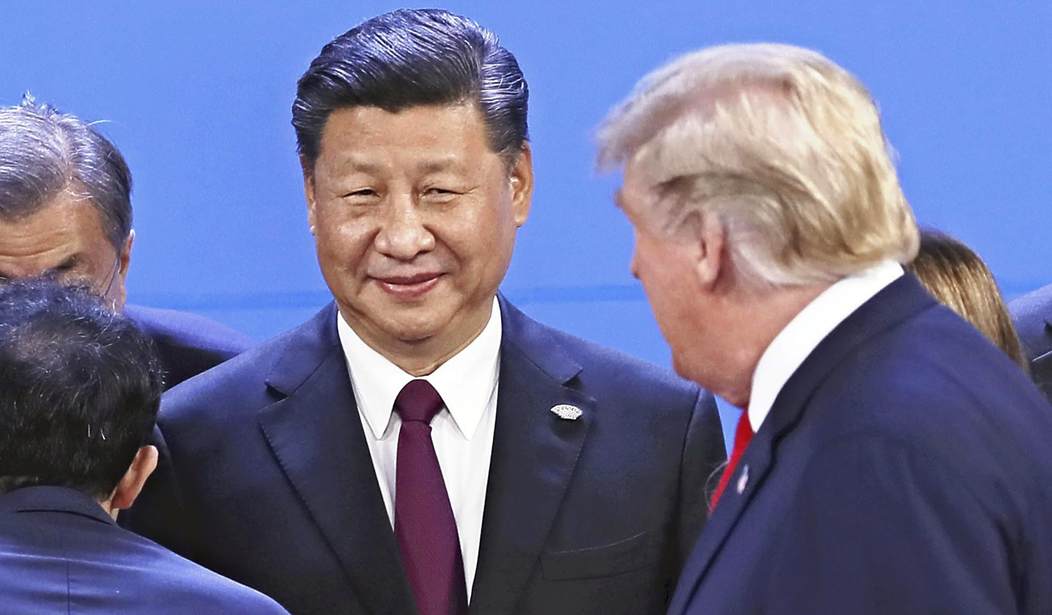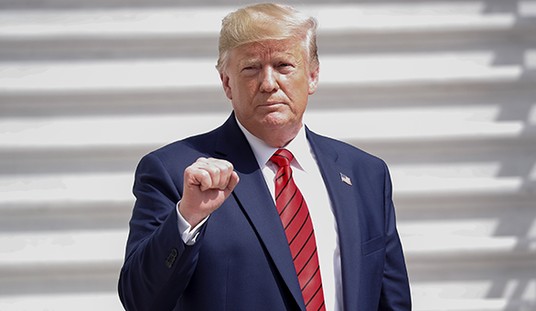Carl Bildt, co-chair of the European Council on Foreign Relations, laments the state of the establishment. In a tweet, he said:
Government in US shut down. Complete meltdown in UK politics. Protest wave forces Macron into wide dialogue in France. Just mess in Italy. Still no government in Sweden. Another day these days…
The stalemate predicted by the last Belmont Club post is now fully evident. While Theresa May’s Tory government could not sell its Brexit plan to Parliament, neither could Jeremy Corbyn seize power. Tory Brexiteer Jacob Rees-Mogg says he will back Theresa May in any confidence vote, “even if she stands on her head on the despatch box. … I will not vote in no confidence against her to put a Marxist in 10 Downing Street.”
The outbreak of unrest observed by Bildt is so vast that the Washington Post had an op-ed explaining it: Putin at work. The hand of Russian collusion is seen everywhere. “From Brexit to NATO and the shutdown, Putin is winning so much he might get tired of winning,” it read:
We don’t know exactly how much Moscow spent supporting influence operations to impact the U.K. and U.S. elections in 2016, but it seems hard to overstate how good the Kremlin’s return has been on what Western intelligence agencies believe was a relatively modest investment.
Russian efforts to manipulate American voters during the last presidential campaign have been aggressively covered in this space, but the Kremlin’s bid to boost Brexit was perhaps even more brazen. The Democratic members of the Senate Foreign Relations Committee released a meaty report last week about Russian influence operations overseas, but it was entirely overshadowed by the latest bombshells stemming from special counsel Bob Mueller’s investigation. The 206-page report outlines Russian disinformation campaigns across 19 countries. It highlights loopholes in U.K. campaign finance laws that might have allowed an influx of Russian money to boost the referendum. That’s not to mention the propaganda from Russian-run Twitter and Facebook accounts, plus state-funded media.
It’s worldwide conspiracy. If anything the problem with the Mueller investigation is it is too small — like sending a rowboat after a megalodon. If the op-ed is right then they’re going to need a bigger special prosecutor.
The alternative explanation for the perfect political storm now rocking the West is that a substantial number of people actually voted for Brexit, and Donald Trump, and are angry with the policies of Emmanuel Macron, reflecting some kind of global revolt by the Western “have-nots” against the “haves.”
This possibility was advanced by Glenn Reynolds writing in USA Today. “Donald Trump is a symptom of a new kind of class warfare raging at home and abroad.” It’s the Deplorables versus the New Class:
Yugoslav dissident Milovan Djilas called these party hacks the “New Class,” noting that instead of workers and peasants against capitalists, it was now a case of workers and peasants being ruled by a managerial new class of technocrats who, while purporting to act for the benefit of the workers and peasants, somehow wound up with the lion’s share of the goodies …
But the New Class isn’t limited to communist countries, really. Around the world in the postwar era, power was taken up by unelected professional and managerial elites. To understand what’s going on with President Donald Trump and his opposition, and in other countries as diverse as France, Hungary, Italy and Brazil, it’s important to realize that the post-World War II institutional arrangements of the Western democracies are being renegotiated, and that those democracies’ professional and managerial elites don’t like that very much, because they have done very well under those arrangements. And, like all elites who are doing very well, they don’t want that to change.
Of course it need not be either completely one or the other. Russia — and China and the Gulf States for that matter — has been trying to influence Western policy for decades. Subversion has always existed, but it is hard to imagine how such efforts could have suddenly become so spectacularly effective unless it was combined with a genuine political disaffection.
The problem with Reynolds’ thesis is that it makes too much sense. It lacks the dramatic appeal of conspiracy. But if it’s conspiracy we must at least make it a first-rate one. Among the hardest things for the current collusion theory to explain, apart from how Russia managed to outfox the secret services of the U.S., UK, and France, is why the Kremlin did not act through Merkel, with Corbyn, or with Hillary, who were left wing or at least more-left wing. Russia has a decades-long investment in Western political movements sympathetic to it; why turn around and stab them in the back?
One possibility is the biggest perceived threat to Russia has changed from the West to China. After all the Russians share a conflict border with China but not with America (unless one counts the line across the Bering Strait). While Russians are virtually certain America will never invade Russia, there have been numerous actual conflicts with China, the most recent in 1969.
More painfully, Moscow is now the junior partner of the two Eurasian giants and the Kremlin is fast dwindling by comparison. “Moscow has no wish to become China’s raw materials supplier, but nor does it want to be a subordinate partner of the West. Instead, it seeks a degree of independence through Putin’s great power vision of Russia as a Euro-Pacific actor.” What better way to maintain the balance of power?
To the Kremlin the biggest threat must have been the relative decline of the West vis-a-vis China caused by the corrosive effects of its own useful fools. Without a U.S. and Europe able to balance China the Russians would be overmatched. The necessity to maintain a power parity would give them the motive for undermining the Western Left. It is a matter of conjecture whether the Russians did this, but it would explain their support for nationalism much more plausibly than the complaints of Western politicians who until recently were devotees of the ideology of Gramsci.
The Russians betrayed the Western Left once before. “Russia portrays the Molotov-Ribbentrop Pact as a ‘defensive’ move necessitated by the Western powers’ appeasement policy in 1938.” Would not Putin regard paralyzing the Western Left as objectively appeasing China? His hero Stalin spun on a dime. “So sudden was the thaw between the strange bedfellows that the five swastika flags rushed to the airport to greet Ribbentrop upon his arrival had to be taken from Soviet movie studios producing anti-Nazi propaganda films.” Could not he?
If the theory that the Western public disaffected with the elites is too fantastic to be true then surely a new Molotov-Ribbentrop is at least as credible as the thesis that Putin is subverting the whole world.
Follow Wretchard on Twitter
For a list of books most frequently purchased by readers, visit my homepage.
Support the Belmont Club by purchasing from Amazon through the links below.
Books:
Custer’s Trials: A Life on the Frontier of a New America, by T.J. Stiles. Winner of the 2016 Pulitzer Prize in History, this book paints a portrait of Custer that demolishes historical caricature, revealing a volatile, contradictory, intense person — capable yet insecure, intelligent yet bigoted, passionate yet self-destructive, a romantic individualist at odds with the institution of the military (he was court-martialed twice in six years). The key to understanding Custer, Stiles writes, is keeping in mind that he lived on a frontier in time. In the Civil War, the West, and many other areas, Custer helped to create modern America, but could never adapt to it. Stiles casts surprising new light on a near-mythic American figure, a man both widely known and little understood.
Tribe: On Homecoming and Belonging, by Sebastian Junger. We have a strong instinct to belong to small groups defined by clear purpose and understanding or “tribes,” a connection now largely lost. But its pull on us remains and is exemplified by combat veterans who find themselves missing the intimate bonds of platoon life at the end of deployment and the high rates of post-traumatic stress disorder suffered by military veterans today. Combining history, psychology, and anthropology, Junger explores what we can learn from tribal societies about loyalty, belonging, and the eternal human quest for meaning. He explains why we are stronger when we come together, and how that can be achieved even in today’s divided world.
For a list of books most frequently purchased by readers, visit my homepage.
Did you know that you can purchase some of these books and pamphlets by Richard Fernandez and share them with your friends? They will receive a link in their email and it will automatically give them access to a Kindle reader on their smartphone, computer or even as a web-readable document.
The War of the Words, Understanding the crisis of the early 21st century in terms of information corruption in the financial, security and political spheres
Rebranding Christianity, or why the truth shall make you free
The Three Conjectures, reflections on terrorism and the nuclear age
Storming the Castle, why government should get small
No Way In at Amazon Kindle. Fiction. A flight into peril, flashbacks to underground action.
Storm Over the South China Sea, how China is restarting history in the Pacific
Tip Jar or Subscribe or Unsubscribe to the Belmont Club










Join the conversation as a VIP Member